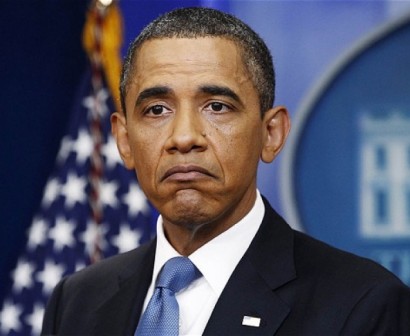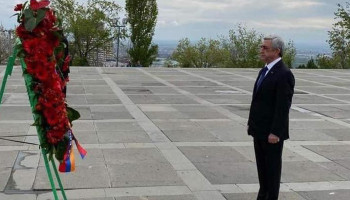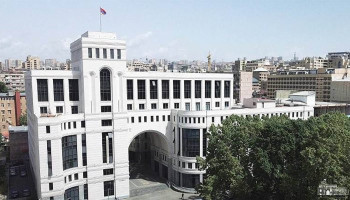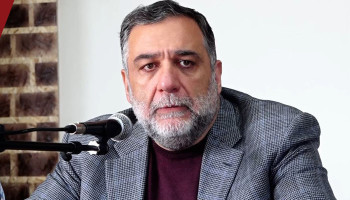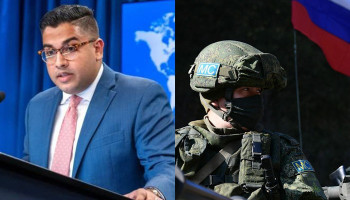U.S. officials are scrambling to find ways to blunt Russian and regime aggression in Syria. But none of the limited set of options currently being crafted would stop the eastern part of the country’s largest city, Aleppo, from falling into the hands of the Bashar al-Assad regime and its Russian allies, two U.S. officials told the Daily Beast.
Rather, lower level American officials are proposing to arm U.S.-backed rebels with more powerful, longer range weapons and surface-to-air weapons to potentially thwart Russian and regime airstrikes. The hope is that such weaponry would be enough for opposition groups to retain their control in other parts of Syria, like the suburbs of Damascus.
The surface-to-air missiles would not include shoulder-fired anti-aircraft missiles—so-called “MANPADS,” short for “Man Portable Air Defense Systems,”—but rather less mobile systems that would be less likely to end up in the wrong hands, the officials said.
“Those kind of plans are on the table,” one of the U.S. officials explained to The Daily Beast.
But even those plans would be an ambitious sell to the White House, the officials concede, given that the administration has so far rejected direct military intervention in eastern Aleppo. None of those potential proposed responses would be carried out in time to stop the fall of eastern Aleppo into regime hands, which officials have told The Daily Beast is imminent.
Meetings to talk options in Syria this week have been postponed, one official said. The reasons for the delay are unclear. But the indecision and unwillingness to stop a humanitarian disaster has deeply divided government agencies.
To many in the administration, the officials said, the U.S. plan in Syria appears to be working—succeeding in its campaign to weaken ISIS, the self-proclaimed Islamic State throughout Syria.
The assault on on Aleppo is an entirely separate matter, they argue.
Proponents of doing more to stop Russian and regime advances have argued that if eastern Aleppo falls, which has appeared increasingly likely since the collapse of ceasefire talks Sept. 19, the campaign could prove a template for the Assad forces to use in other parts of Syria. Aleppo could be a formula for regime takeover of the whole country.
Moreover, the administration would be leaving the next president an emboldened Putin in Syria.
If eastern Aleppo fails, the regime and Russia could start attacking hospitals, bakeries, food and water supplies in the suburbs of Damascus as they have done in Aleppo, a key city in the five-year civil war.
In a bid to reclaim a major urban area, the Assad regime has used bunker buster bombs—designed to pierce hardened, underground military targets—in addition to incendiary weapons and chemical weapons, to siege and starve civilians out of the city.
The result has been a devastating assault on the cities, leaving thousands starving. According to the World Health Organization, as recently as the week between September 23 and September 30, 338 people were killed in eastern Aleppo, including 106 children.
And this week, thousands of Syrian troops began moving into the opposition-controlled part of the city, beginning a block-by-block clearing, albeit with limited success. Rebels have said they have reclaimed areas back from regime forces. But regime forces have kept advancing, reportedly driving tanks past the frontlines Tuesday.
Government military commanders reportedly argued Wednesday that opposition forces are using the civilians of eastern Aleppo as human shields and that it would reduce the number of airstrikes.
A day earlier, the U.S. announced it had suspended ceasefire talks with Russia, citing the ongoing air assault on eastern Aleppo. The end of the months-long talks marked the closing the most viable non-military solution. On Wednesday, France launched a new bid to restart talks to allow aid to reach civilians in eastern Aleppo.
Meanwhile, Secretary of State John Kerry and his Russian counterpart Sergey Lavrov spoke Wednesday. According to one readout of that phone call, Lavrov blamed the United States for the failed ceasefire, in part, because the U.S refused to separate which opponents were moderates and which were affiliated with al Qaeda and other jihadist groups.
No one can say for sure when eastern Aleppo could fall as the city has seen a resilient opposition and a regime that has moved slowly through the city. Some U.S. officials said it could be weeks, while others predict there will no formal fall as the opposition will be able to keep fighting.
Regardless, the frustration across government is widespread and the outcome post-Aleppo is clear.
“Assad will stay in power but he will not win the war,” one official concluded, echoing an op-ed by Sen. John McCain which appeared Wednesday.
“While the U.S.-led coalition is making progress in the fight against Islamic State, we cannot forget this terrorist organization is a symptom of the Syrian civil war. The future of that conflict will have significant strategic impact on U.S. national security,” McCain wrote.
